Sensors already equip a range of tools to enhance monitoring capacity for conservation. Some of the higher bandwidth technologies, like camera traps and acoustic monitoring systems, have been essential elements of the conservation toolkit for decades, and thus have enough users that we've created dedicated WILDLABS groups to address them. But a whole range of lower bandwidth sensors beyond these core technologies are being increasingly integrated into conservation monitoring systems, and offer rich new insights into the wildlife and ecosystems we're all working to protect. As with many technologies, cost and access have historically been challenges to the adoption of new sensors, but with low-cost and open-source solutions on the rise, we're excited to see what the future of this space holds.
Getting Started with Sensors:
- Watch Shah Selbe's Tech Tutors episode on scaling FieldKit, an open-source conservation sensor toolbox, from a project to a successful conservation tech product.
- Check out our Virtual Meetup about Low-Cost, Open-Source Solutions in conservation tech, including a talk by Alasdair Davies on the Arribada Initiative's work with thermal sensors in early warning systems.
- For a more in-depth introduction, watch the first video in our datalogger mini-series: Freaklabs: How do I get started with Arduino?
In this group, you'll meet others who are using and innovating diverse sensors in their work, discuss ways to make sensors more effective & accessible for conservationists, learn about what sensors are already helping us accomplish in the field, and have the opportunity to ask and answer questions. Join this group to get started!
Header image: Emma Vogel, University of Tromsø
No showcases have been added to this group yet.
- @maddy
- | Dr
Iam a Doctorate in molecular bology by profession & associated with a tech startup, focued on IoT/sensor based automation solutions. But I spend half of my time to document and conserve local & wildlife arond us and trying to explore our technology in conservation.Love to join
- 0 Resources
- 0 Discussions
- 5 Groups
Martin Wainaina Chege is a registered Geomatics Expert with experience in GIS software development, Remote sensing, Surveying, and Environmental and Social Impact Assessment (ESIA) with theoretical knowledge, technical and practical skills in IoT, Software Engineering, data


- 1 Resources
- 7 Discussions
- 5 Groups
trying to understand and improve the welfare of all animals that can suffer


- 4 Resources
- 6 Discussions
- 7 Groups
Cornell University

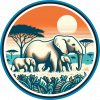
- 0 Resources
- 0 Discussions
- 12 Groups
- @Fatuma
- | She/Her
I aim to transition my career towards conservation technology after gaining two years of experience in the tech industry.
- 0 Resources
- 0 Discussions
- 13 Groups
Robotics and IoT Engineer living in Costa Rica since 2000
- 0 Resources
- 1 Discussions
- 4 Groups
Neuroscientist & engineer looking for a data/R&D role in conservation.
- 0 Resources
- 0 Discussions
- 17 Groups
- @hyodopenguin
- | she/her
I am currently a rising junior at UC Berkeley studying data science. I hope to apply data with biodiversity, especially by utilizing camera traps for species classification. People in conservation tech are truly living my dream careers, and I can't wait to get even more inspired!

- 0 Resources
- 5 Discussions
- 23 Groups
- @iainhook
- | Mr
Passionate supporter of New Zealands predator free 2050 goals. Founder of both eTrapper Ltd - offering IoT solutions to enhance efficiencies of conservation projects, and Maungakiekie Songbird - a community based project to enhace local habitat around One Tree Hill in Auckland.
- 0 Resources
- 1 Discussions
- 6 Groups
- 0 Resources
- 0 Discussions
- 12 Groups
Systems Engineer at Edge Impulse, experiencce with hands-on edge machine learning for wildlife conservation

- 1 Resources
- 2 Discussions
- 4 Groups
- 0 Resources
- 4 Discussions
- 7 Groups
In this article, WWF's Whitney Kent discusses how radio collaring carnivores like lions and African wild dogs helps prevent human-wildlife conflict by acting as warning devices for communities and monitoring species'...
28 April 2021
Margo Supplies is excited to introduce the WILDLABS community to the Margo Gadfly, a new tool tested for its ability to prevent human-wildlife conflict! Read about how this hardware works, and how it protected...
31 March 2021
Community Announcement
Whether you spent the last year working in the field, lab, at home, or virtually, the WILDLABS community's conservation tech achievements were on full display in our annual #Tech4Wildlife Photo Challenge! Relive our...
25 March 2021
National Geographic is offering funding up to up to $50,000 for conservationists conducting research on how the pandemic has impacted wildlife and conservation work. If you are interested in researching aspects of the...
10 March 2021
Article
Today we're celebrating the #Tech4Wildlife Photo Challenge by shining a spotlight on one of our favorite WILDLABS collaboration success stories: the BoomBox! This collaboration between Dr. Meredith Palmer, Jacinta ...
26 February 2021
How can drones and ATVs protect black-footed ferrets from the plague? In this case study from WWF's Northern Great Plains Program, Black-footed Ferret Restoration Manager Kristy Bly discusses how delivering vaccines to...
17 February 2021
Our friends at FieldKit are excited to announce the official launch of the FieldKit! These open source environmental sensing hardware modules are now available for pre-sale in the FieldKit store. You can also read about...
11 February 2021
Last year, Tim van Deursen and Thijs Suijten shared their new "Hack the Poacher" system with us, presenting a unique way to detect poachers in real-time within protected national parks. Read on to learn about their...
29 January 2021
This month, WILDLABS member Drew Cronin shared the new paper "Empowering rangers through technology and innovation." This collaborative effort included several members of the WILDLABS community and leadership, and...
27 January 2021
In this case study from WWF's Northern Great Plains Program, Black-footed Ferret Restoration Manager Kristy Bly discusses how infrared FLIR cameras help teams detect and monitor the highly endangered black-footed...
19 January 2021
As we launch our new Sustainable Fishing Challenges group in the WILDLABS community, we are excited to welcome Daniel Steadman, the group manager, to give us an overview of three major areas in which #tech4wildlife...
4 December 2020
Hey Acoustic Monitoring and AI for Conservation community members - don't miss Rainforest Connection's Species Auto Detection Kaggle competition, open for to competitors and teams now! Participants will have the chance...
24 November 2020
August 2025
event
September 2025
event
March 2026
November 2023
event
17 Products
Recently updated products
121 Products
3 R&D Projects
84 Organisations
Recently updated products
Recently updated R&D Projects
Recently updated organisations
| Description | Activity | Replies | Groups | Updated |
|---|---|---|---|---|
| Thank you! I will follow up by email. |
+8
|
Animal Movement, Conservation Dogs, East Africa Community, Geospatial, Sensors, Women in Conservation Tech Programme (WiCT) | 5 months ago | |
| Thanks Jack, that's an interesting repo. |
|
Sensors | 5 months 1 week ago | |
| Sure, Akio! Happy to answer!1. Yes, something like that. The few existing i guess applied already for GPS collar (literally collar) that usually for big cats and some other big... |
|
Sensors, Animal Movement, Open Source Solutions | 5 months 2 weeks ago | |
| How much does it cost to incorporate machine learning into your conservation drone geospatial analysis? How does it speed up your workflow... |
|
Conservation Tech Training and Education, Drones, Geospatial, Open Source Solutions, Sensors, Software Development | 5 months 2 weeks ago | |
| Thanks so much for all the advice!! This seems very achievable. We don't mind having the fibre optic fixed in place as we planned to have a shorter one specifically for this... |
|
Sensors, Marine Conservation | 5 months 2 weeks ago | |
| Hi Dan, Not right now but I can envision many uses. A key problem in RS is data streams for validation and training of ML models, its really not yet a solved problem. Any... |
|
Emerging Tech, AI for Conservation, Animal Movement, Build Your Own Data Logger Community, Camera Traps, Connectivity, Conservation Tech Training and Education, Data management and processing tools, Geospatial, Sensors | 5 months 3 weeks ago | |
| @Eric24 The use case is as I wrote to Patrick: "a parent unit in the centre of a conservation area which is to recieve one way packets from child sensor units spread around the... |
|
Sensors | 6 months ago | |
| Hi Lucille,Thank you for your reply! We’d be really interested in learning more about your developments. We’ll contact you soon to arrange a discussion.Thank you.Best regards,... |
|
Acoustics, AI for Conservation, Sensors | 6 months ago | |
| Hi Simon,We (Reneco International Wildlife Consultants) have an ongoing collaboration with a local University (Abu Dhabi, UAE) for developing AI tools (cameratrap/drone... |
|
Acoustics, AI for Conservation, Animal Movement, Camera Traps, Citizen Science, Connectivity, Drones, Early Career, eDNA & Genomics, Marine Conservation, Protected Area Management Tools, Sensors | 7 months ago | |
| No, not yet. The player we attached does support slower/faster replay up to a certain precision, but I'm not sure that this will be sufficiently precise for the kind of offsets we... |
|
Animal Movement, Data management and processing tools, Sensors, Software Development | 7 months 4 weeks ago | |
| Hello everyone,I built Brave Puffin (https://bravepuffin.com) - a small, autonomous, long range, solar powered boat. It is designed to... |
|
Build Your Own Data Logger Community, Marine Conservation, Sensors | 7 months 4 weeks ago | |
| Hello WalterThanks for your input. I have achieved better results with the puc when hooking it up to a powerbank. Have got them set up to "recording only", and GPS to low power... |
|
Acoustics, AI for Conservation, Citizen Science, Sensors | 7 months 4 weeks ago |
Using GoPro cameras? Why not get sponsored by them?
29 December 2015 9:40pm
1 November 2016 1:09pm
All of it can be applied to conservation though!
1 November 2016 1:45pm
I am not suggesting that GoPro cameras do not have applications in conservation, but if you follow the link you posted you will find questions being asked that a conservation project will be unable to answer.
Zoohackathon: 'END LOOP - Coding to end wildlife trafficking'
22 September 2016 12:00am
Perspectives from the World Ranger Congress
10 August 2016 12:00am
Has technology provided a one-stop measure to halt albatross bycatch in fisheries?
5 August 2016 12:00am
How can technology help us monitor those small cold-blooded critters that live in caves?
25 July 2016 12:00am
Passive Acoustic Monitoring: Listening Out for New Conservation Opportunities
29 June 2016 12:00am
Wildlife Crime Tech Challenge Accelerator Bootcamp
24 June 2016 12:00am
Science Makers: sensor networks on 2 July
22 June 2016 8:09am
22 June 2016 4:04pm
Thanks for sharing this event, Jenny! Looks really interesting, hope to see you there.
Portable DNA Sequencer
24 March 2016 4:51pm
26 April 2016 6:53pm
Thanks, Adam, for initating a discussion about the MinION. It certainly seems to have a lot of promise, however the scientists who are currently field testing it detect very high error rates. It's been on my radar as a possible field kit for extracting DNA out of wood as it gets processed into various forest products through the supply chain. The implication here is that the part of a tree that is made into forest products is made up of dead cells and thus it is very difficult to extract quality and quantity DNA out of wood. This, combined with the high error rates makes it 'still very much in development' for forest products - but perhaps it'd be suitable sooner for other applications in the conservation world. There's a professor at New Mexico State Univ. who has been working with the MinION for a while now on wood - Brook Milligan. He recently gave a talk at the 'London Calling' Oxford Nanopore (maker of the Minion) conference that is worth watching: https://londoncallingconf.co.uk/2015/videos/view/241
22 June 2016 10:43am
Hi John and Adam,
I've been hearing a lot about Oxford Nanopore Technologies and MinION over the last few months, and while it sounds fanastic, it's been difficult to get an understanding about the potential and limitations of this piece of tech, particularly as relates to conservaiton applications. So hearing your experiences, John, is really interesting.
For anyone interested in learning more about MinION and nanopore technology, I've just came across a thorough article in the Atlantic about the sequencer that was helpful for me as a total novice (though a very interested one!) in the world of nanotechnology and eDNA. It gives context to the MinION in terms of history, current applications and potential applications. It also features one of our community members, Jon Whetton, who is also a USAID Wildlife Crime Tech Challenge Winner, talking about the potential applications to conservation:
The etymology of VolTRAX may be farcical, but its purpose is not. This domino-sized add-on for the MinION is designed to prepare a biological sample—say bodily fluids, or swabs of soil—for sequencing. It moves liquid through a network of fine channels, bombards it with chemical reagents to extract DNA, and loads that DNA into the MinION. “We spend a lot more time in the lab preparing samples than we do sequencing,” says Loman. “If, and it’s a big if, you could drop the clinical sample onto the chip that does it all for you, it would be hugely advantageous.”
VolTRAX is set to go out to early users this summer. Jon Wetton, a geneticist and forensic scientist at the University of Leicester, wants to use it to fight illegal wildlife trafficking, by sequencing telltale genes that act as identity badges for different species. Conservationists have already used this technique, known as DNA barcoding, to track sources of elephant ivory or identify whale meat posing as sushi. But samples must be shipped for analysis, and “you’re looking at weeks or months to get the results back,” says Wetton. “That can’t be done on anything perishable, or if you’ve got a suspect in custody. But with an on-the-spot test, you could confiscate, arrest, or do something about it.”
With a nanopore sequencer, inspectors could tell the difference between a cut of beef or bushmeat from threatened apes and monkeys. They could analyze the blood on a suspected poacher’s tools to reveal the identity of the last animals it cut. They could work out if seized caviar belong to legitimate fish species or endangered sturgeon. “You could answer a whole slew of serious wildlife crime issues with the same test,” says Wetton.
That still leaves the significant problem of parsing the data, but Oxford Nanopore has a solution for that, too: an online hub called Metrichor, where people can connect to ready-made apps for analyzing DNA sequences. One such app, developed by Oxford Nanopore itself, is called “What’s In My Pot?” or WIMP. It takes sequences and identifies the organisms they belong to. The team have already field-tested it on microbes from a sewage-contaminated river behind their own building, and on unpasteurized milk from the back of a New York lorry.
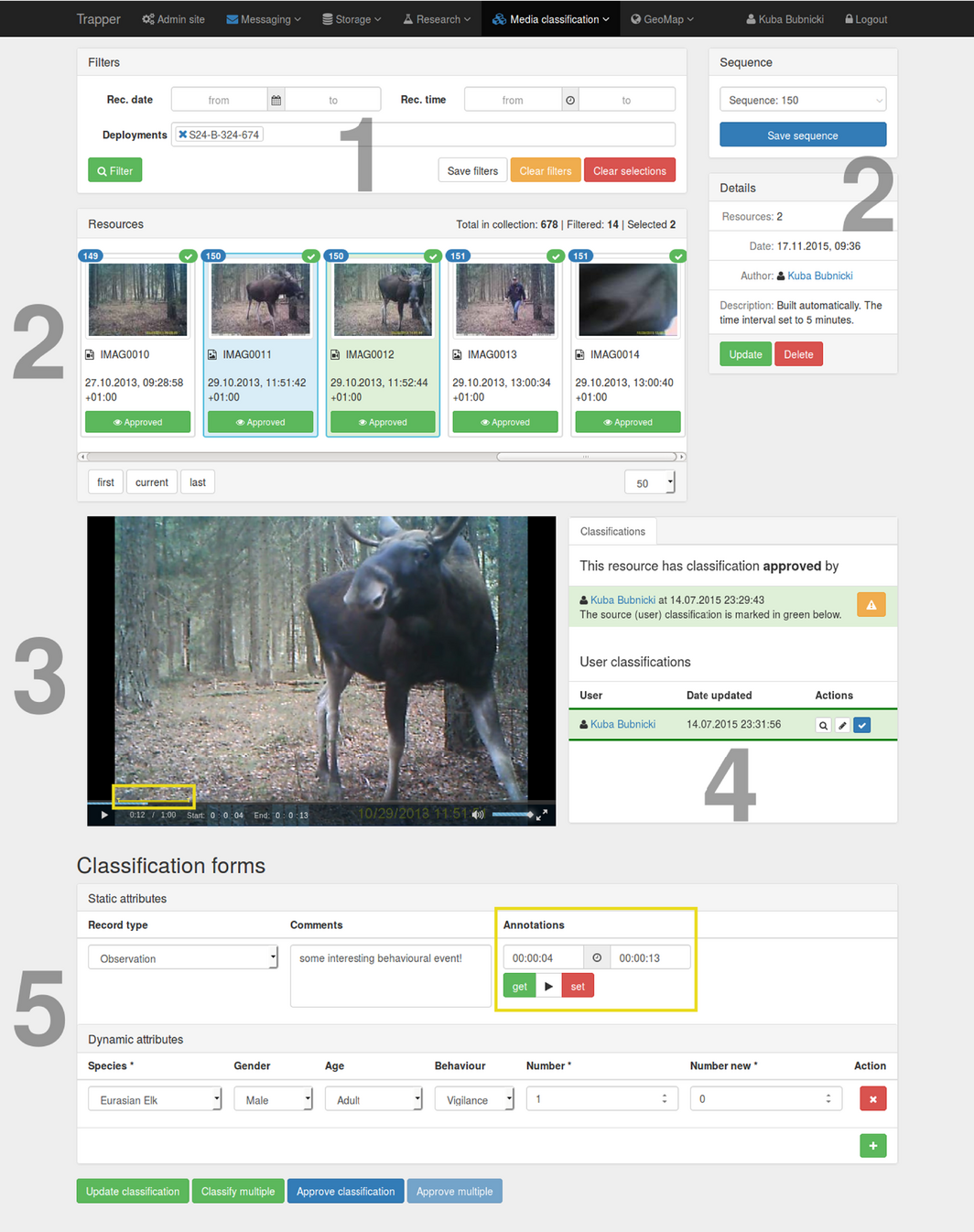
Sensory: BBC Wildlife Director John Downer & the technology of ‘spy-cam’ filmmaking
13 May 2016 11:55am
Utilizing thermal imaging technology
27 April 2016 7:43pm
Text Messages from Teenage Gannets
25 April 2016 12:00am
Eggs Eggs and more Eggs
2 March 2016 1:05pm
24 March 2016 4:42pm
Latest news about this project was picked up by the BBC world service for a short interview
http://www.bbc.co.uk/programmes/p03nwl8g
You can also read more here:
http://spectrum.ieee.org/geek-life/hands-on/build-an-electronic-vulture-egg
Underwater sensors
18 March 2016 12:39am
Could Big Data Have Saved Cecil the Lion?
4 January 2016 12:07pm
12 February 2016 7:16pm
It's very interesting what you say about the strength of a name. I do think that anthropomorphism can be a good thing in the case of conservation. By giving Cecil a name and a life story (incidentally a very cosy British name, which is interesting in itself), it brings the issue into emotional focus. We are attracted to characters and stories, not data. The plight of a named lion strikes a stronger chord than the numbing statistic of 600 "un-named" lions dying every year.
So do we care more about nature if we make anthropomorphise it? I think yes, as it creates a relatable personal connection with our own lives.
I'd like to get in touch with you next week as this is an area I am very interested in exploring and I hope I can be of help. Paul
14 March 2016 4:37pm
We're just starting to look a lot at Storytelling in Wildbook (http://www.wildbook.org).
This is what a data profile looks like in Wildbook:
http://www.whaleshark.org/individuals.jsp?number=A-001
While we allow for basic anthropomorphism via nicknaming, it's still a very data centric view of what a combined group of reserchers knows about the animal.
We have experimented with social media profiles which interestingly have an analogous data schema as mark-recapture:
http://fb.wildme.org/wildme/public/profile/WS-A-001
But we want to go ever further with storytelling mediums (e.g., story maps?) that can be automated from scientific data input, especially where cit sci data and reserch data can be reliably mixed.
So in addition to a name, we want to build a relationship through a portrayal of its life history and even potentially a view of the social network of the animal participates in (if such data can be shared safely.).
16 March 2016 7:22am
That's great Jason. I think your approach can be very successful. I'm a little bit familiar with Wild Book through my contacts at IBEIS, who I believe you work with quite closely. I'd love to see how the work we are doing at Internet of Elephants can incorporate whale shark data. I'll message you separately to discuss.
An Internet of pigeons?
14 March 2016 4:16pm
Ecotech Grants from the Captain Planet Foundation
18 February 2016 12:00am
Bringing Conservation Technology to Life
17 February 2016 12:00am
Wildlife Crime Tech Challenge: Winners Announced!
22 January 2016 12:00am
Deep Coral Reef Exploration and Discovery: Two-way Technological Flow
24 December 2015 12:00am
Cheap Space, DIY Imaging and Big Data
21 December 2015 12:00am
The Impact of the Internet of Things
10 December 2015 12:00am
The Social Lives of Conservation Technologies and Why They Matter
2 November 2015 12:00am

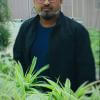

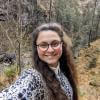




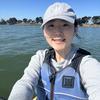


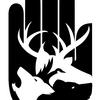
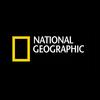
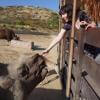
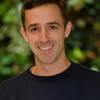
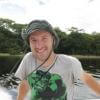



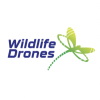

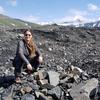









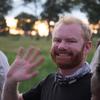
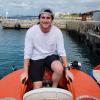














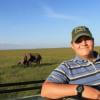

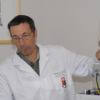




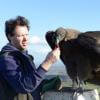
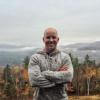
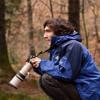

31 October 2016 2:47pm
Sport, Music, Event, Film/Photo are the only options I see on that link - nothing for conservation research.